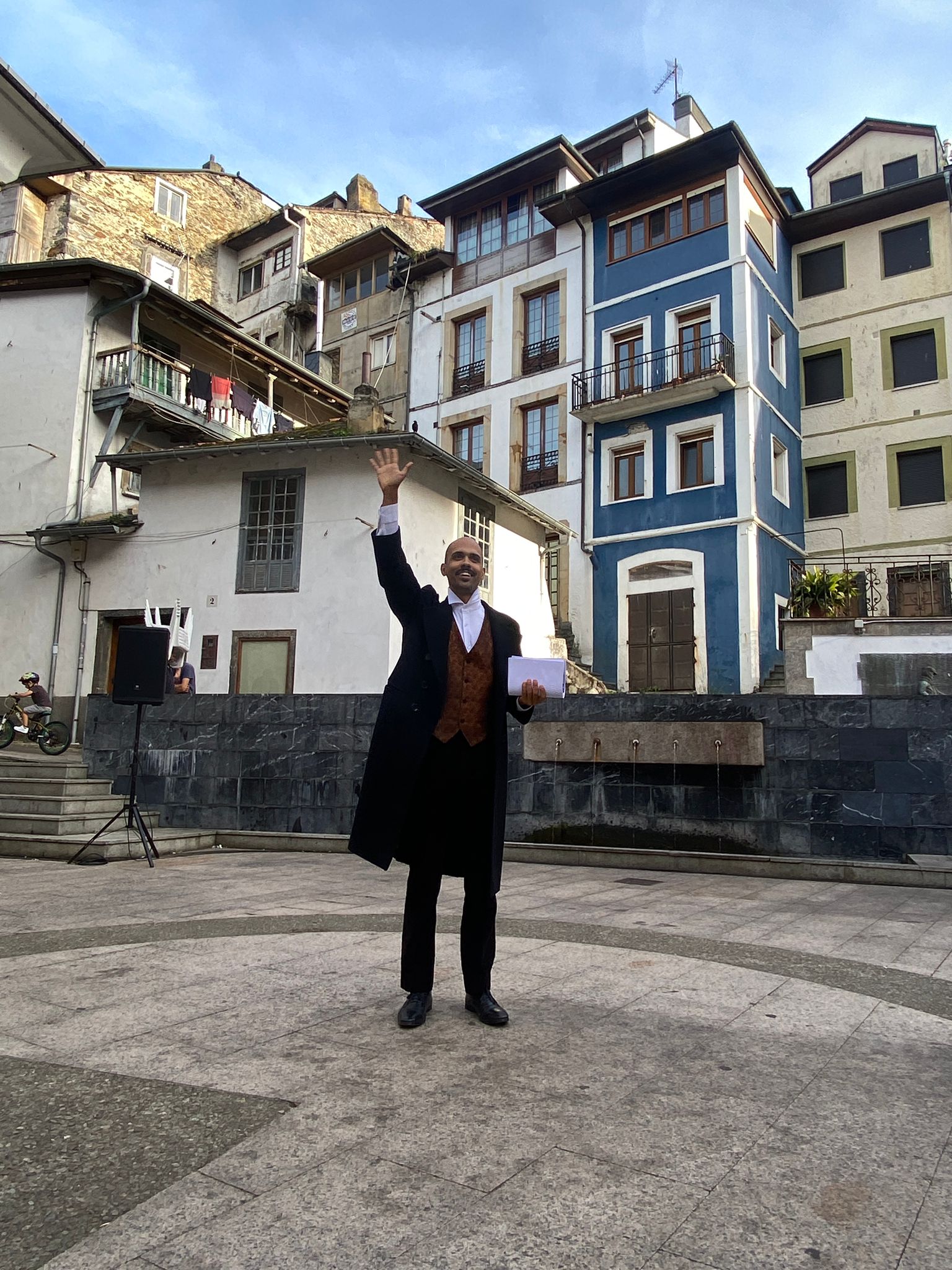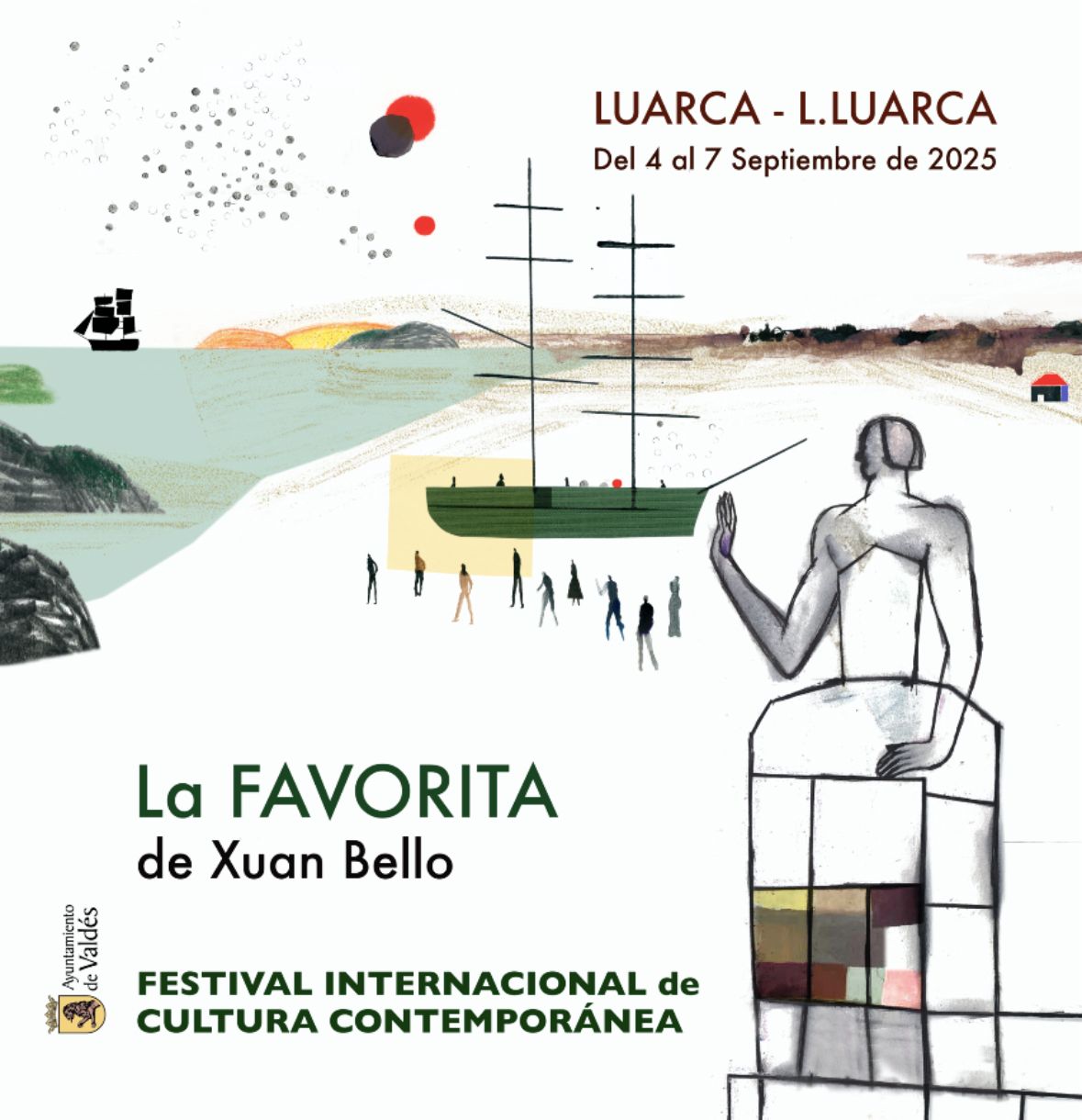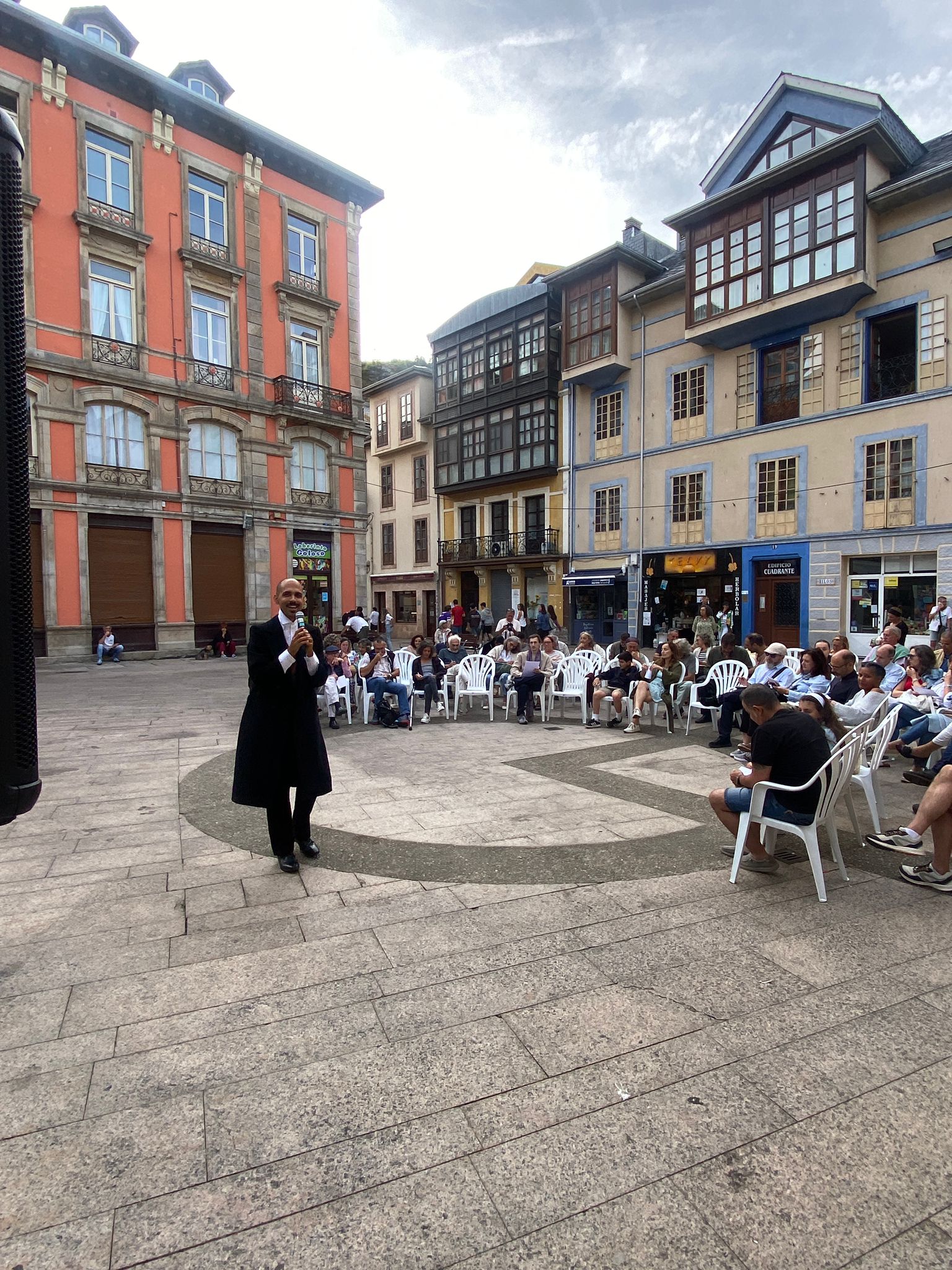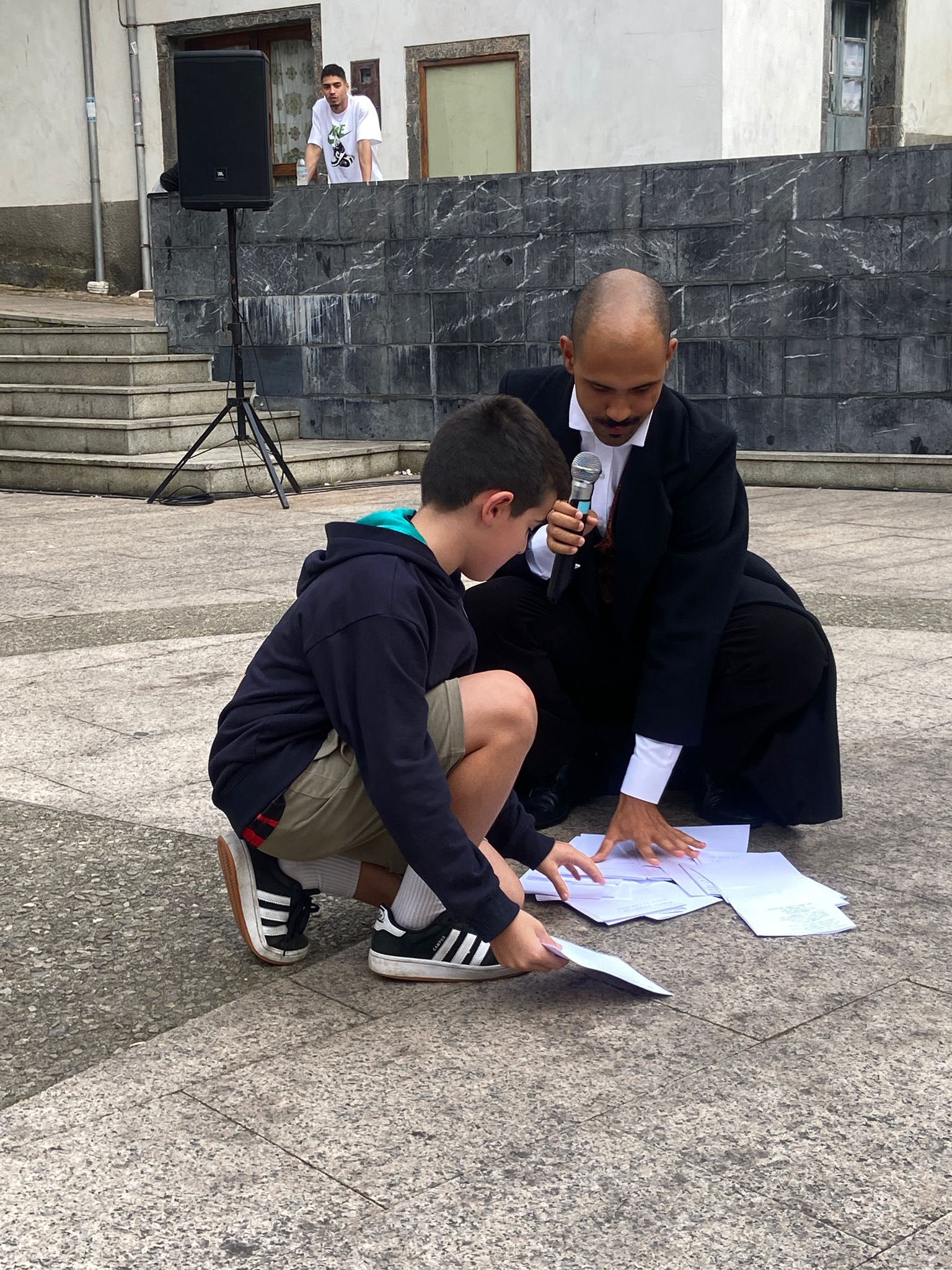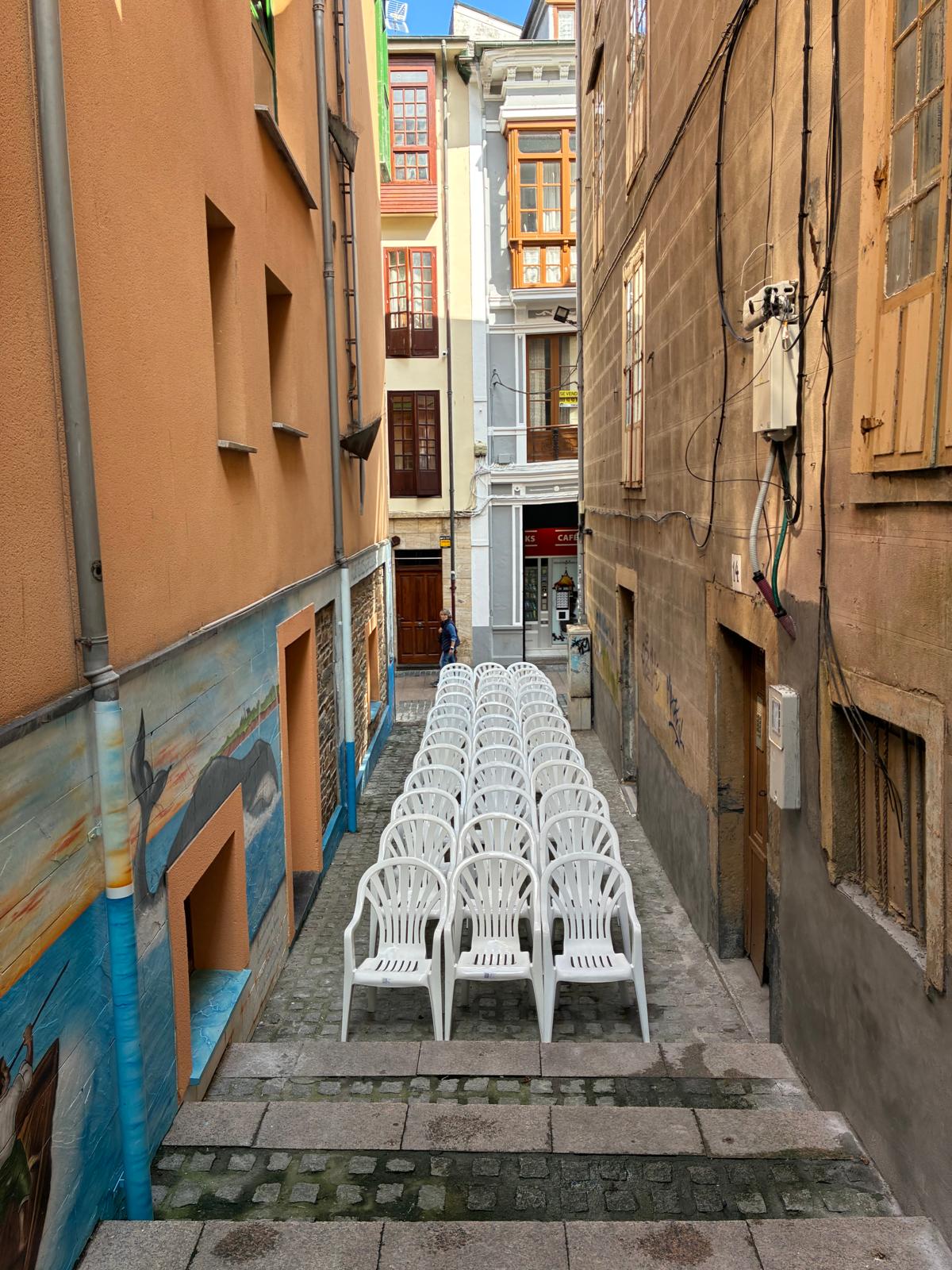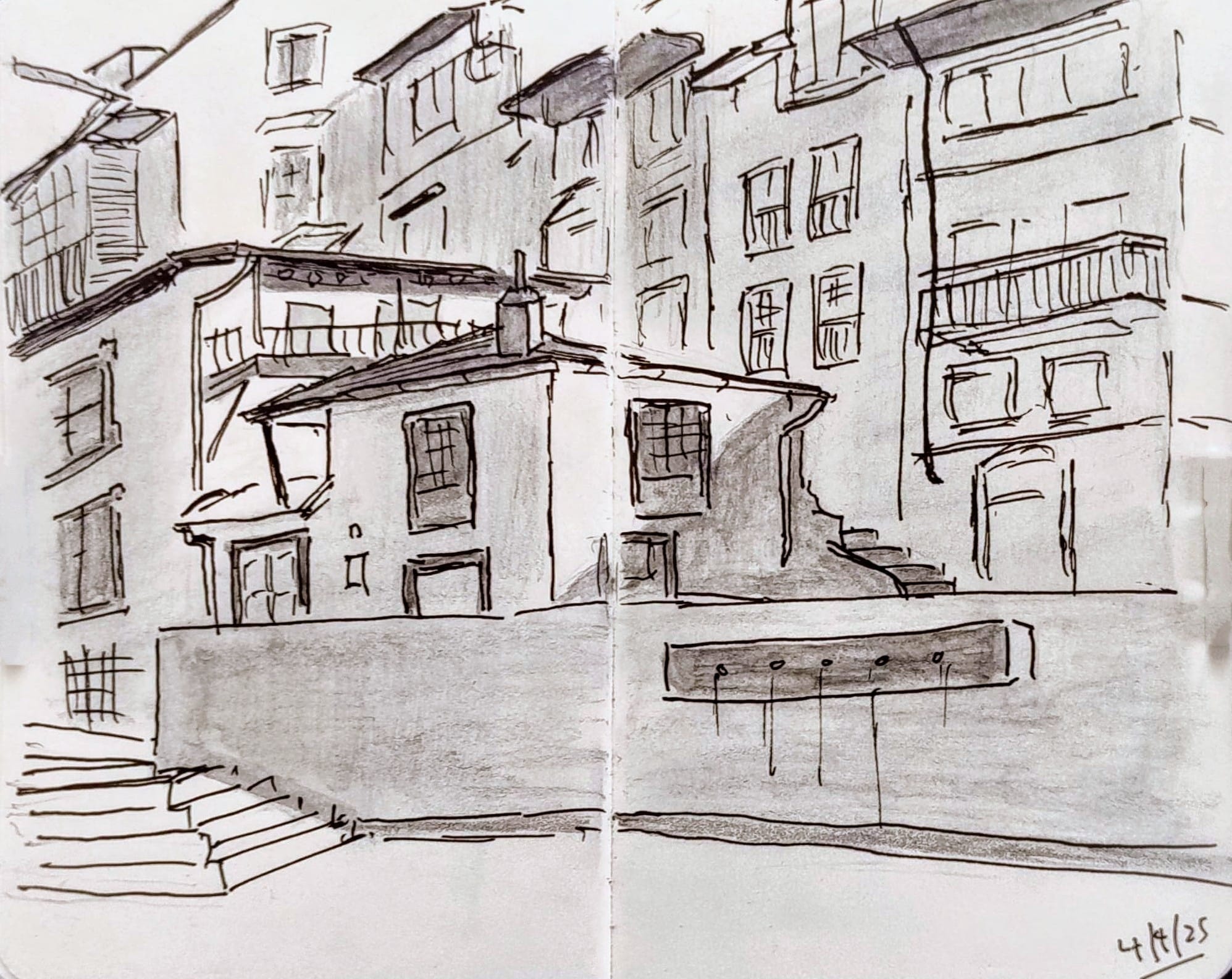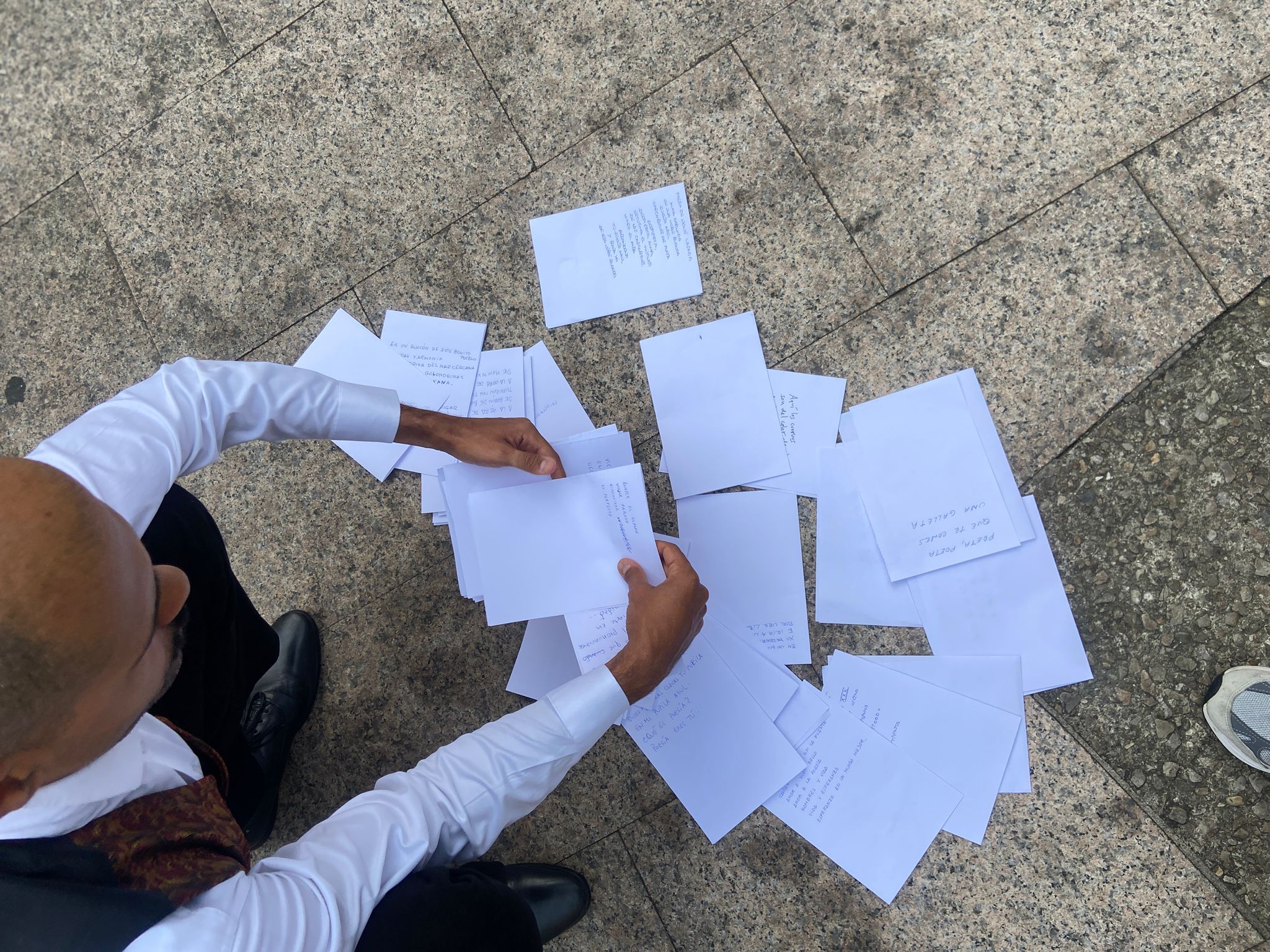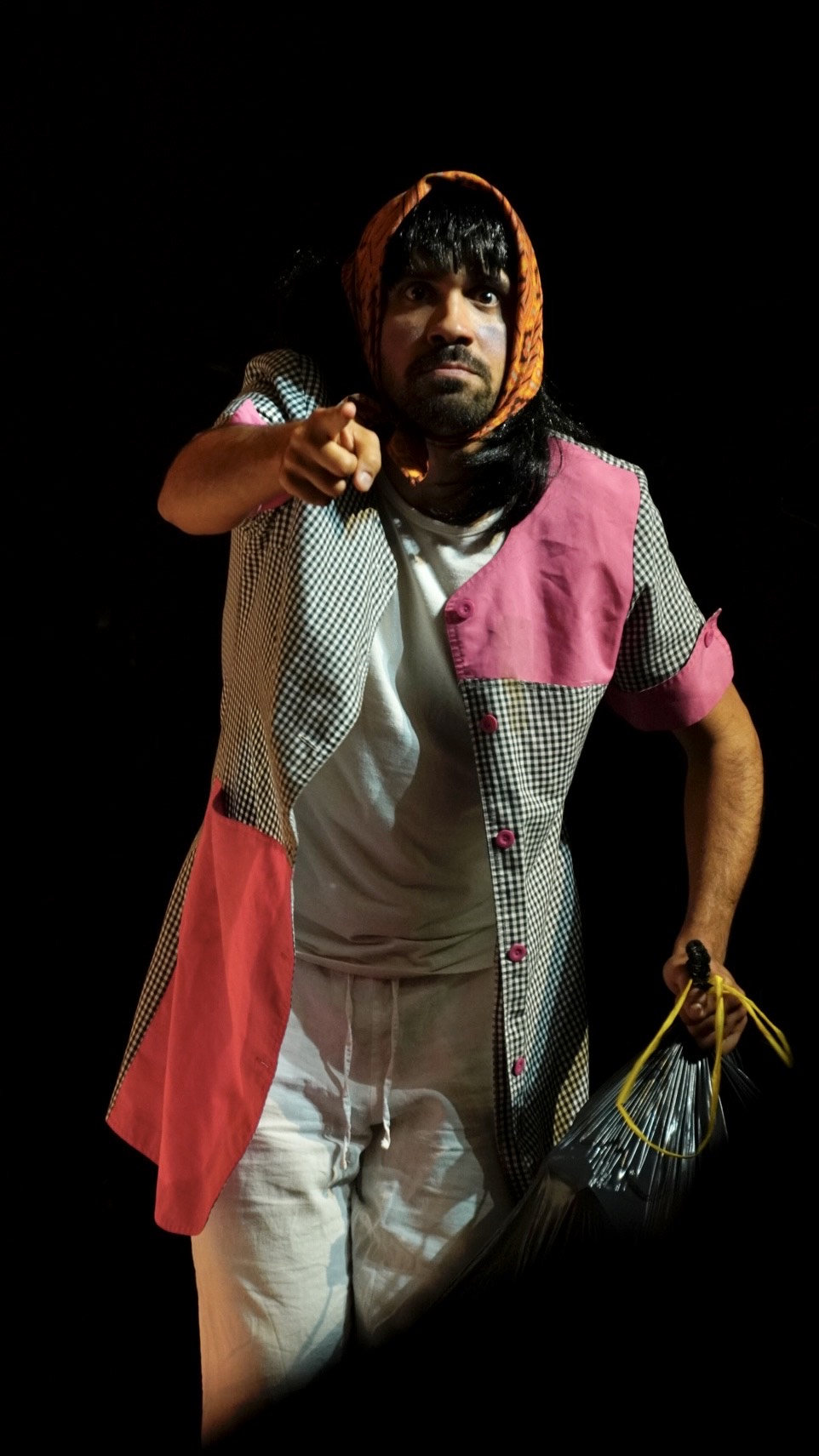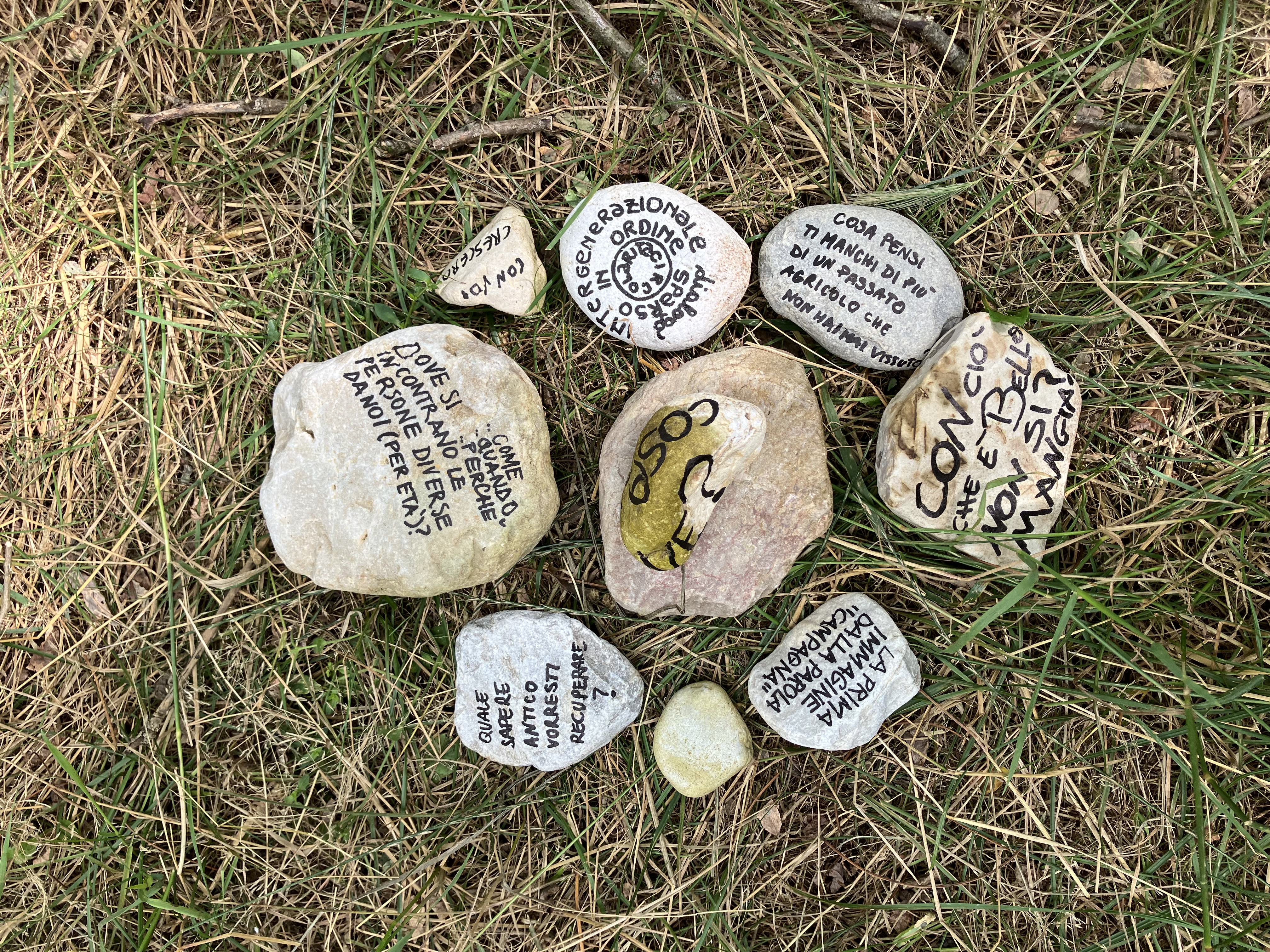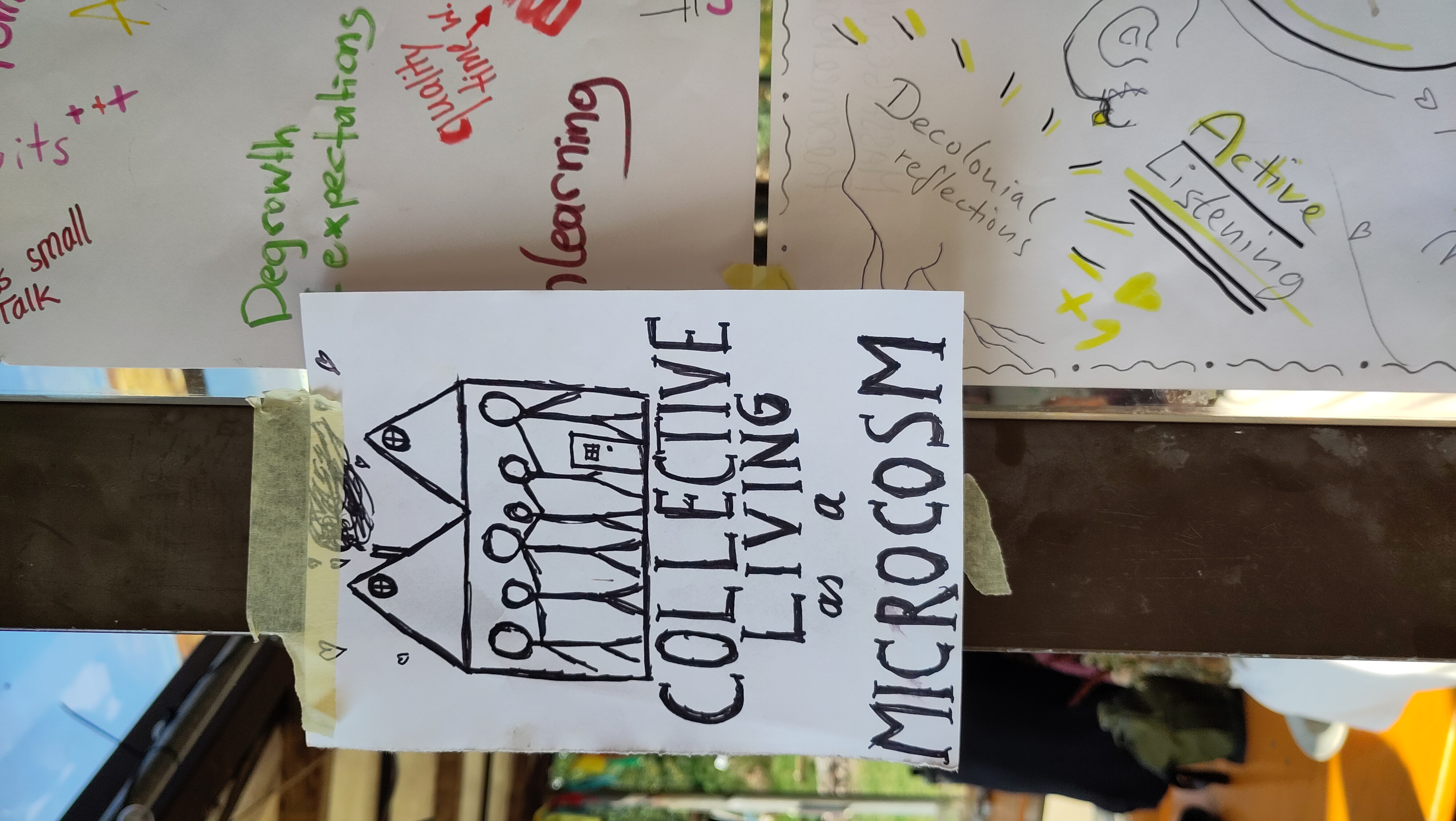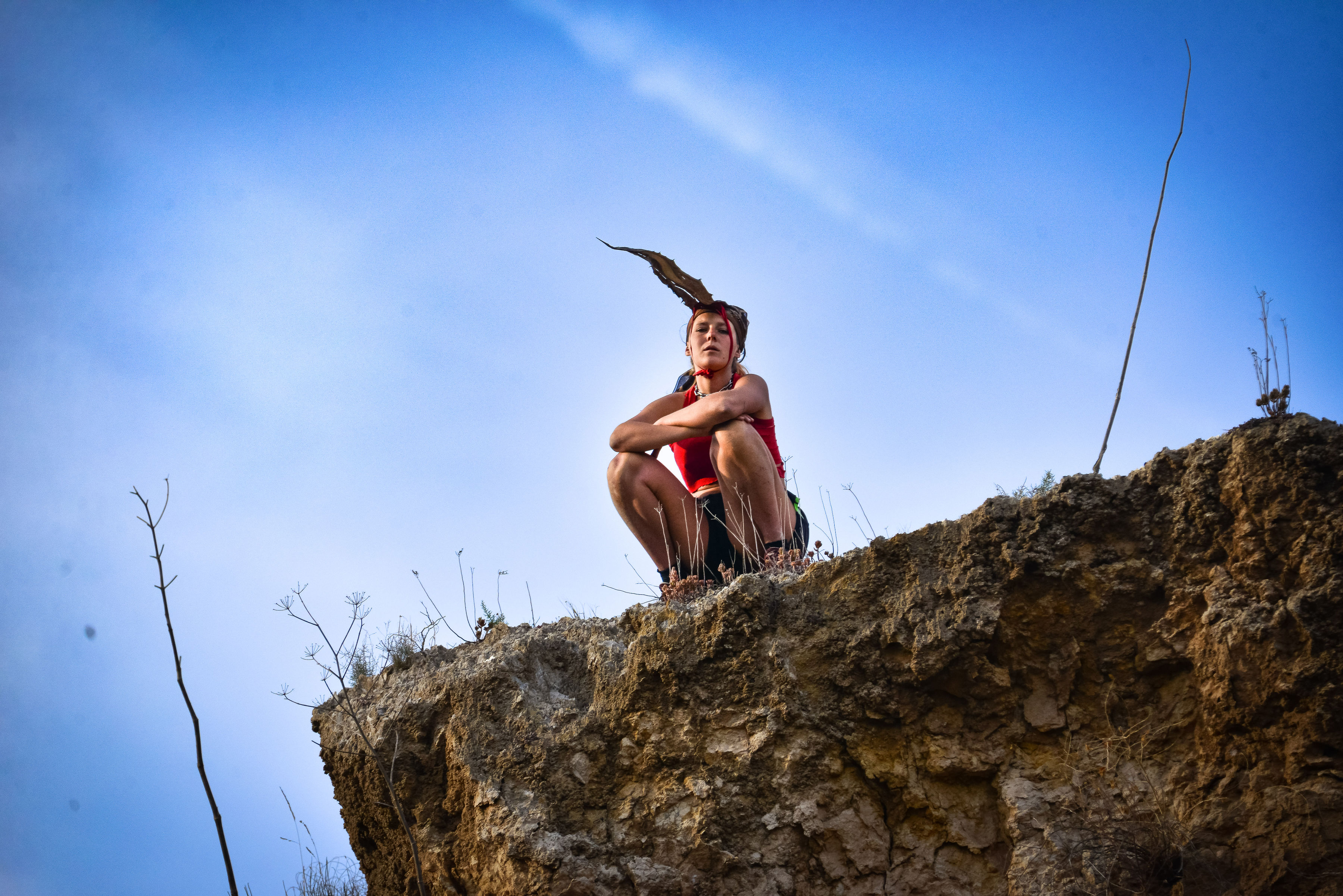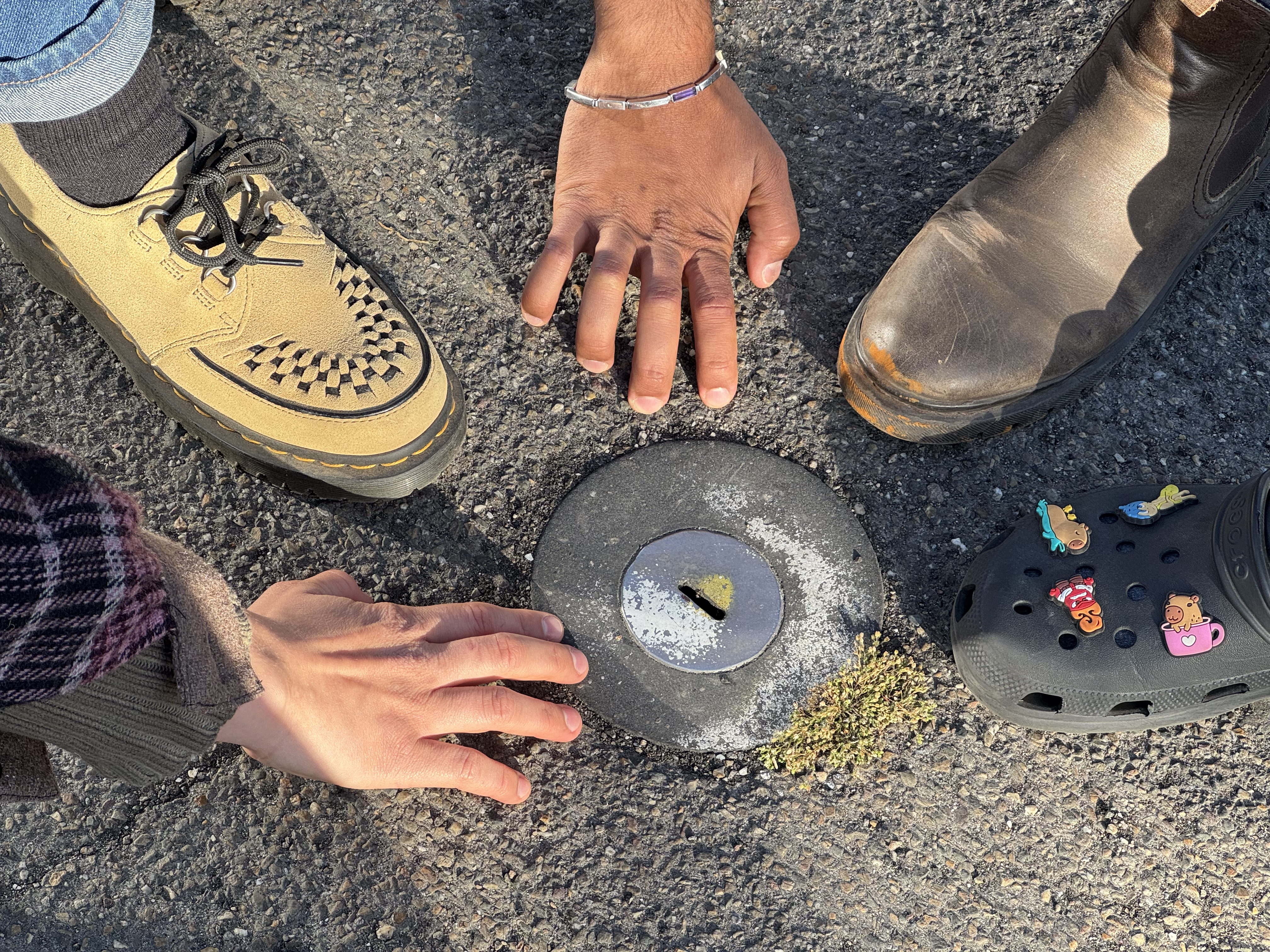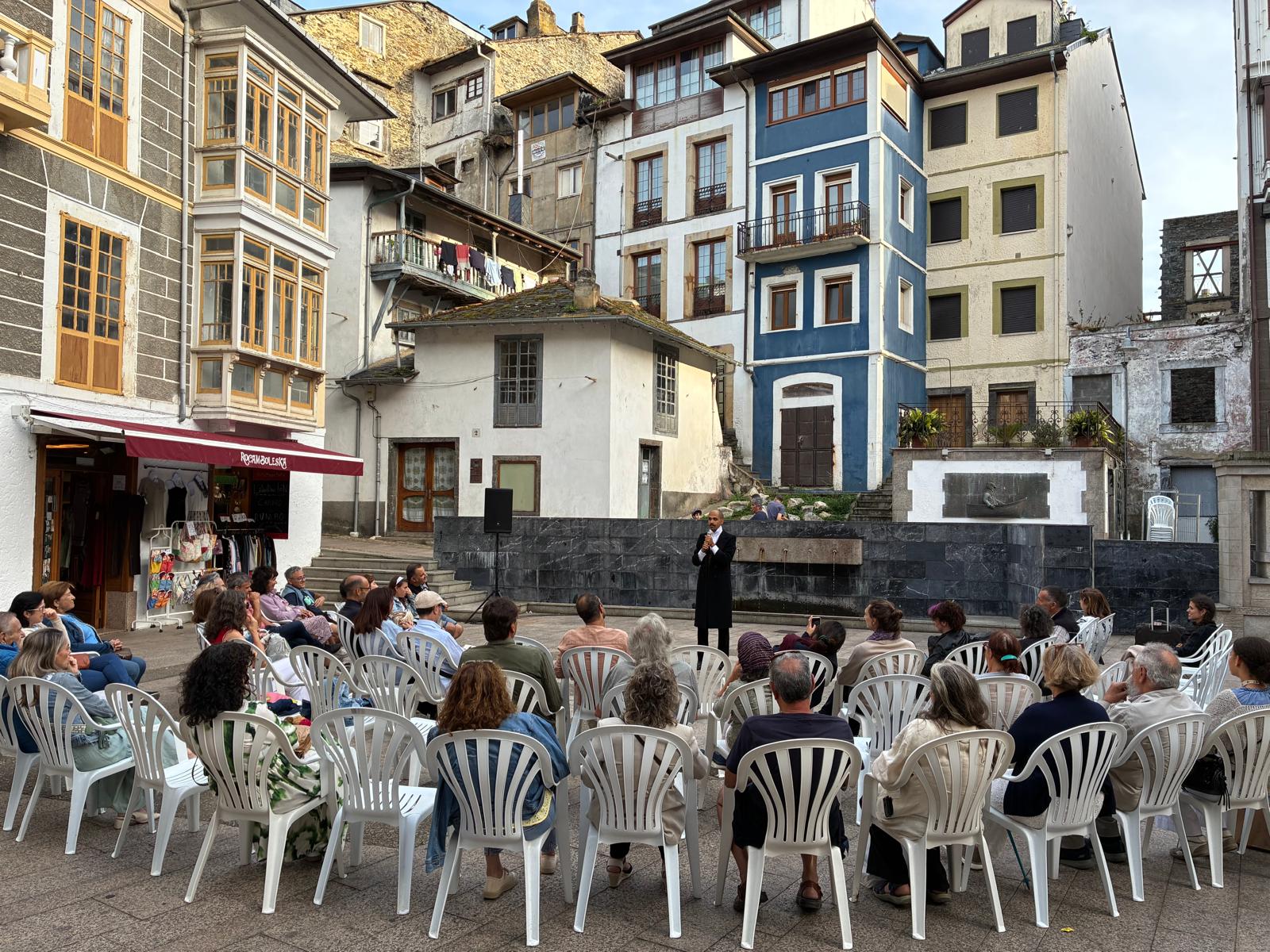
La nube que nada
The cloud that swims
Keywords: collaborative poetry, dystopian future, site-specific performance, interactive monologue
Direction - Carlo Sella
Dramaturgy - Carlo Galiero
Production - Arraiga, lab of rooted imagination
Performed in
Luarca, Spain
Contemporary culture international festival
La FAVORITA de Xuan Bello 2025
The cloud that swims
Keywords: collaborative poetry, dystopian future, site-specific performance, interactive monologue
Direction - Carlo Sella
Dramaturgy - Carlo Galiero
Production - Arraiga, lab of rooted imagination
Performed in
Luarca, Spain
Contemporary culture international festival
La FAVORITA de Xuan Bello 2025
The cloud that swims is a site-specific performance conceived as a tribute to the Asturian writer Xuan Bello, who passed away in July 2025. The piece enters into direct dialogue with his literary legacy, especially his celebrated Historia universal de Paniceiros.
In this book, Bello evokes a timeless Asturian imagination, where memory, myth, and identity intertwine. Among its passages appears the image of a man who travels across the centuries in search of Christ, only to finally discover that he himself was Christ. This paradoxical gesture, seeking what already dwells within, served as the inspiration for the dramaturgical structure of our piece.
The performance begins from a speculative premise: in the future, poetry has been lost. A man travels through different eras, attempting to rediscover its meaning, guided by the voices of poets and fragments of memory. His journey culminates in present-day Asturias, in Luarca during the days of the festival, where he has heard that poetry is alive and in motion.
By inviting the community to respond, the performance turns the audience into co-creators: the man of the future cannot understand poetry unless it is collectively reimagined in the here and now.
In this book, Bello evokes a timeless Asturian imagination, where memory, myth, and identity intertwine. Among its passages appears the image of a man who travels across the centuries in search of Christ, only to finally discover that he himself was Christ. This paradoxical gesture, seeking what already dwells within, served as the inspiration for the dramaturgical structure of our piece.
The performance begins from a speculative premise: in the future, poetry has been lost. A man travels through different eras, attempting to rediscover its meaning, guided by the voices of poets and fragments of memory. His journey culminates in present-day Asturias, in Luarca during the days of the festival, where he has heard that poetry is alive and in motion.
By inviting the community to respond, the performance turns the audience into co-creators: the man of the future cannot understand poetry unless it is collectively reimagined in the here and now.
